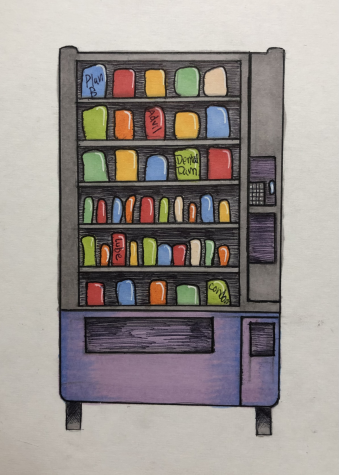First chickenpox case on campus in “many years”
September 16, 2021
Though chickenpox was once common in childhood, the disease has mostly pushed to the background thanks to herd immunity achieved either through vaccination or having contracted the disease as a child. However, a chickenpox case came to Whitman College on Aug. 27, 2021 when members of the campus community opened their inboxes to find an email from Chief Financial Officers and Chair of the Coronavirus Task Force Peter Harvey stating that a student on campus had contracted the disease.
“The student [was] treated by doctors at Providence St. Mary Medical Center and… moved into isolation housing that is separate from our designated COVID-19 isolation housing,” Harvey said in the email.
Cases of chickenpox are rare on college campuses, according to Health Center Director Claudia Ness.
“Prior to this year, it had been many years since we have had a case of chickenpox on our campus,” Ness said.
While it’s not possible to get an exact percentage of Whitman students who’ve been immunized, the number is likely very high since most get the two-dose Varicella vaccine in early childhood. According to the Centers for Disease Control, the vaccine is more than 90 percent effective at combating the disease, and if people who do get the vaccine become sick, “the symptoms are usually milder with fewer or no blisters (they may have just red spots) and mild or no fever.”
Breakthrough cases—when someone vaccinated gets the disease—are rare. Even when breakthrough cases occur, they’re less severe than if someone without that immunity gets chickenpox, like with the COVID-19 vaccine. Getting vaccinated after exposure can also reduce the severity of a case, according to Harvey’s Aug. 27 email.
The Varicella vaccine isn’t required for students to be on Whitman’s campus, but students who are not vaccinated can contact Ness for information about a vaccine clinic.
According to Ness, Whitman’s Health Center follows American College Health Association and Washington State Department of Health guidelines in requiring vaccines on campus. So while there are many recommended vaccines, only two vaccines, MMR (Measles, Mumps and Rubella) and the COVID-19 vaccine are required.
With COVID-19 at the forefront of many people’s minds, most people aren’t thinking about other diseases. But this case on Whitman’s campus serves as a reminder that there’s still a possibility of getting sick from chickenpox, the flu or even a common cold. It’s important to continue to take precautions to prevent illnesses beyond COVID-19.
“Social distancing can help prevent the transmission of more than just COVID-19,” Ness said. “It helps against chickenpox, influenza and other viruses.”





